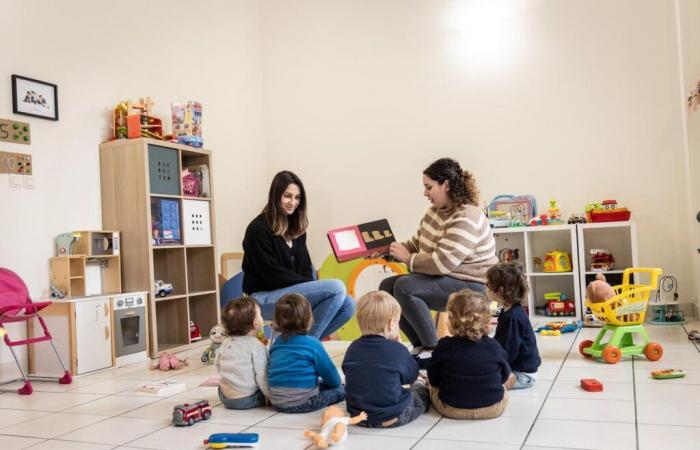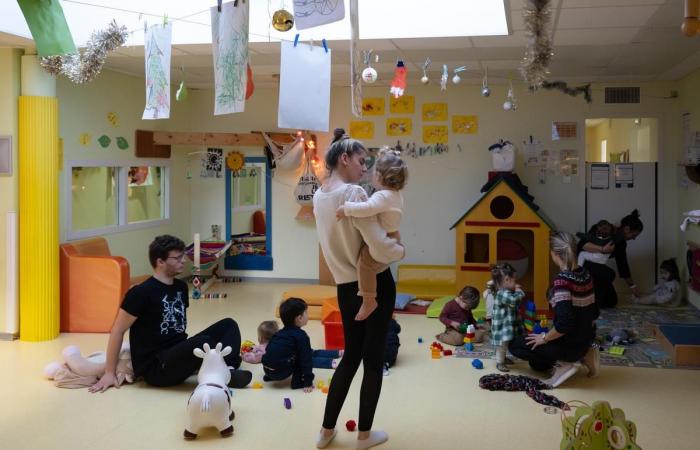TIt begins with a tragedy: the death of a baby in a Lyon nursery during the summer of 2022. In the process, the General Inspectorate of Social Affairs (Igas) is tasked with investigating French nurseries. “For a year, we visited around forty establishments of all kinds,” says Christophe Itier, general inspector of social affairs. A mission exclusively focused on collective reception: a second survey, in the first quarter of 2025, will scrutinize childminders.
Christophe Itier, general inspector of social affairs.
In each
Refocusing childhood policy around… the child
First observation drawn up by Igas: “A very heterogeneous quality of reception. » Second subject of observation: “The policy for welcoming young children was designed to meet the needs of families, and in particular within the framework of professional fairness”, deciphers the Inspector General. If the intention is laudable towards mothers, the needs of the child are not at the forefront. “However, they are decisive, particularly in the first 1,000 days”, as recalled by the commission chaired by the Bordeaux-born neuropsychiatrist Boris Cyrulnik.
“We must rebalance childhood policy, between the legitimate needs of families and the needs of children”
Also, the inspectors conclude that “it is undoubtedly necessary to rebalance childhood policy, between the legitimate need of families to have a childcare response and the needs of the children”. It is with this in mind that in its recommendations, Igas proposes to strengthen parental leave. “This avenue is currently being considered at the political level,” supports Christophe Itier, welcoming the fact that the Court of Auditors rendered conclusions on December 12 validating the interest, including financial, of maternity leave extended by one month and measures promoting parental leave. As it stands, the latter is too poorly paid – around 440 euros – to be considered a real option.
Staff shortage…
However, families must have the choice, supports Igas. “Today, they don’t have it,” laments the inspector, detailing the shortage. “170,000 French people give up training or employment due to lack of childcare. » And if the government has planned the deployment of 200,000 reception places by 2030, it is because the current offer does not “make it possible to satisfy a fifth of the demand of families”, details the Court of Justice. accounts.
XAVIER LEOTY / SO
In France, the model of reception methods is struggling: it no longer meets the needs of families. It is also mistreating children and professionals in the sector.
…and a break between reception and school
Another reflection drawn from the field but also from the comparison with other European countries: if this period of very early childhood is short, it is also poorly articulated with entry to school. “However, there is a real continuum between the child's awakening and his school learning,” supports Christophe Itier. In short: the first months spent in “reception mode” are decisive for schooling. “We must therefore change our outlook on early childhood professionals, too often considered as guardians and not actors in the child's development,” continues the inspector.
Hence the shortage of personnel, measured by the CAF in a study published in 2022: 10,000 places closed due to lack of professionals. As a result, in recent years, the level of training required has been lowered and supervision rates relaxed. “And, as a result, phenomena of institutional mistreatment. »
Already, a restructuring of the professions is underway, under the leadership of the early childhood sector committee, in different directions: the training of professionals, the establishment of a quality benchmark and work on the architecture of diplomas.
Report of failure
Conclusion: the needs of families are neither quantitatively nor qualitatively provided for, while professionals in the sector are suffering. An observation of failure which questions, at the highest level, the model of early childhood care in France. “It’s a structural change that needs to be made,” asserts Christophe Itier.
After the Igas report on collective crèches, that of the Court of Auditors, and while waiting for the investigation into childminders – 48% of whom will retire by 2030 – a conference, organized by Igas, brought together at the beginning of December all the players in early childhood policy in France and neighboring countries, to develop the ideas for a new model.
“Some of our recommendations have already been implemented, such as the control of private daycare centers or the overhaul of training,” supports the inspector general. The ball is now in the government's court. “It’s about giving greater impetus to early childhood, for example with a change in governance. »







